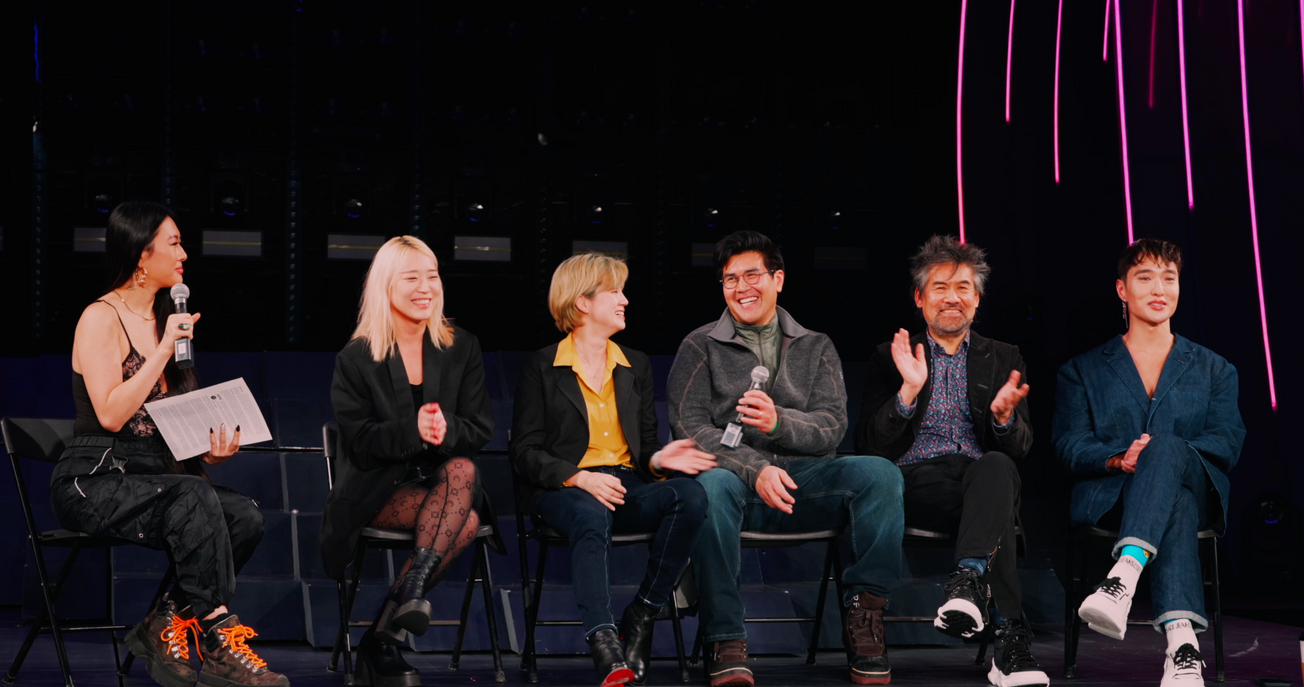On Dec. 11, the original musical “KPOP” played its final Broadway performance. At the time of closing, the musical had played 44 previews and 17 regular performances at the Circle in the Square Theatre. The musical’s swift closure raised questions and an emotional public response about how the show — which featured 21 Korean, Korean-American and Asian/Pacific Islander (API) performers and was made by a largely Korean and Korean-American creative team — could have lasted longer.
In response to the show’s closing notice, “KPOP” cast members rallied outside their theater in Gershwin Alley before the evening performance on Dec. 10. Leaders of the Asian American/Pacific Islander (AAPI) theatrical community took part in a post-show talkback that immediately followed the Dec. 11 closing performance. The talkback united Helen Park, composer of “KPOP”; playwright Hansol Jung, Pun Bandhu, co-founder of the Asian American Performers Action Coalition (AAPAC); and Tony Award-winning playwright David Henry Hwang. Led by journalist Kimmy Yam, the panel sought to answer: Where are we now with regards to AAPI representation on Broadway, and how do we improve?
Hwang began. “When I first started having plays produced way back in 1980, first of all, the term ‘Asian American’ was still not readily being used, and second of all, white actors were still playing Asians in yellow face. If you look at it from that arc, there’s been a lot of progress.”
“We can celebrate the degree to which a proliferation of excellent Asian American playwrights and artists and actors have exploded on the New York stage, including Hansol, of course,” he continued. “When it comes to Broadway, we still need to do more work.”
Bandhu backed that up with hard numbers. According to AAPAC’s most recent annual visibility report, “Racial Representation on New York City Stages,” data for the 2018-2019 season shows that white actors played 65.9 percent of all roles on Broadway (more specifically, 80 percent of the leading roles in musicals and 89.7 percent of lead roles in plays). On Broadway, 93.8 percent of directors were white, 100 percent of general managers were white and 93.6 percent of producers were white.
Still, there has been progress. When AAPAC first published this report more than a decade ago, Asian actor representation on Broadway was less than 1 percent. Today, that’s grown to 6 percent of all roles.
“But what we learned from the pandemic and this racial reckoning, this moment in time, is that change does not have to be incremental and gradual,” said Bandhu.
“We’ve seen the numbers — especially for the Black artists — rise. But we also have to recognize that so much of the racial conversation in America is so binary, and Asians have been outside of that conversation in many ways,” Bandhu added.
The panel revealed that part of this equation is that artists need to know that their stories will be received by the industry. Composer Park noted that when she first came to New York, she tried to follow the musical styles of previous Broadway composers. She didn’t realize K-pop was a genre she could write in for musical theater. “I had such deep love for this genre of K-pop, but I was not ever thinking that that was something I could write a musical with or something I could be really proud of — especially with the bilingual lyrics,” Park said. Her realization and return to her own passion and culture led her to write “KPOP.”
As more artists of all backgrounds feel the permission to author stories related to their identities and cultures, Hwang posited, “We need to figure out: How are we going to bring audiences in? [‘KPOP’] is a show that belongs on Broadway … and we need to figure out how to make BIPOC audiences feel welcome, including seeing [Jordan E. Cooper’s new play] ‘Ain’t No Mo’,” which also announced its closing less than two weeks after its opening.
As for Park, she had one thought as she said goodbye to the Broadway production of her musical: “I won’t stop. I won’t stop writing. I won’t stop expressing all of the stories, all of the emotions that we have, all of our souls, my soul. I won’t stop expressing that and hoping that more people will express their own stories and their own emotions and experiences through the medium of musicals.”


























































